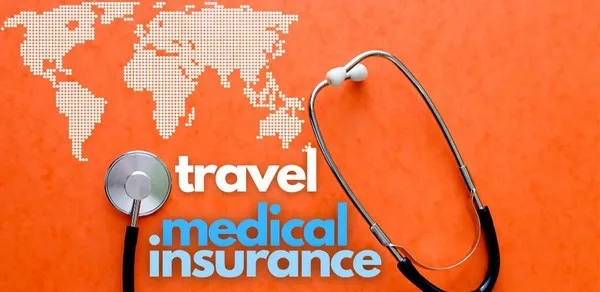Traveling can be an exhilarating experience, offering opportunities for exploration, adventure, and relaxation. However, unforeseen circumstances such as accidents or illnesses can occur, leading to unexpected medical expenses and disruptions to your journey. This is where travel medical insurance comes into play, providing essential coverage to protect travelers from financial burdens and ensuring access to quality medical care wherever they may be.
Definition of Travel Medical Insurance
Travel medical insurance is a specialized type of insurance designed to cover medical expenses incurred while traveling outside of one’s home country. It differs from other types of insurance, such as trip cancellation insurance or health insurance, in that it specifically focuses on providing coverage for emergency medical situations that may arise during travel.
While trip cancellation insurance typically reimburses travelers for non-refundable trip expenses in case they need to cancel or interrupt their trip due to covered reasons such as illness, injury, or other unforeseen events, travel medical insurance primarily focuses on covering medical expenses incurred during the trip itself.
Similarly, health insurance typically provides coverage within a specific geographical area, such as a country or region, and may not extend coverage to international travel or provide the necessary benefits for medical emergencies abroad. Travel medical insurance bridges this gap by offering coverage that is tailored to the needs of travelers outside their home country.
Typical Coverage
1. Emergency Medical Expenses: One of the primary components of travel medical insurance is coverage for emergency medical expenses. This typically includes expenses related to unexpected illnesses or injuries while traveling, such as hospitalization, doctor visits, prescription medications, and emergency medical transportation.
In the event of a medical emergency, travelers can rest assured knowing that their travel medical insurance will help cover the costs of necessary medical treatment, ensuring that they receive the care they need without having to worry about exorbitant medical bills.
2. Emergency Medical Evacuation: In some cases, a medical emergency may require evacuation to the nearest adequate medical facility or even repatriation back home for further treatment. Travel medical insurance often includes coverage for emergency medical evacuation, ensuring that travelers can be transported safely and efficiently to receive appropriate medical care.
Whether it’s arranging for air ambulance services or coordinating transportation logistics, travel medical insurance provides peace of mind knowing that assistance is available in the event of a serious medical situation.
3. Repatriation of Remains: In the unfortunate event of death while traveling abroad, travel medical insurance typically includes coverage for the repatriation of remains to the insured’s home country. This ensures that the necessary arrangements and expenses associated with transporting mortal remains are taken care of, allowing loved ones to focus on mourning and grieving without the added burden of logistical and financial concerns.
4. Additional Coverage Options: In addition to the core components of emergency medical expenses, emergency medical evacuation, and repatriation of remains, travel medical insurance may offer additional coverage options to further enhance protection for travelers. These may include:
5. Accidental Death & Dismemberment: Coverage for accidental death or serious injuries resulting in permanent disability while traveling.
6. Trip Interruption Due to Medical Reasons: Reimbursement for non-refundable trip expenses if the trip is interrupted due to a covered medical reason.
7. Coverage for Pre-existing Conditions: Some travel medical insurance policies may offer coverage for pre-existing medical conditions, although coverage and eligibility criteria may vary.
Exclusions
While travel medical insurance provides valuable coverage for a wide range of medical emergencies while traveling, it’s essential to be aware of common exclusions that may apply. These may include:
1. Pre-existing Conditions: Many travel medical insurance policies exclude coverage for pre-existing medical conditions, defined as any condition for which the traveler has received treatment or advice from a healthcare provider within a specified period before the trip.
2. High-risk Activities: Coverage may be limited or excluded for injuries resulting from participation in high-risk activities such as extreme sports, mountaineering, or skydiving.
3. Travel to Certain Countries: Some travel medical insurance policies may exclude coverage for travel to certain countries or regions that are deemed high-risk or have travel advisories in place.
Factors Affecting Coverage
Several factors can influence the coverage options and costs of travel medical insurance, including:
1. Age: Older travelers may face higher premiums or have limitations on coverage compared to younger travelers.
2. Destination: The destination of travel can impact coverage options and costs, with certain countries or regions having higher healthcare costs or increased risks of medical emergencies.
3. Length of Trip: Longer trips may require extended coverage periods, which can affect premiums and coverage limits.
Tips for Choosing a Policy
When selecting a travel medical insurance policy, consider the following tips to ensure you choose the right coverage for your needs:
1. Assess Your Needs: Evaluate your medical history, destination, planned activities, and travel duration to determine the level of coverage you require.
2. Compare Policies: Shop around and compare multiple travel medical insurance policies to find the one that offers the best combination of coverage, benefits, and premiums.
3. Read the Fine Print: Carefully review the policy documents, including coverage limits, exclusions, and terms and conditions, to fully understand what is covered and what is not.
4. Consider Add-Ons: If additional coverage options are available, such as coverage for pre-existing conditions or trip interruption, consider whether these are necessary based on your individual circumstances.
5. Purchase Early: It’s advisable to purchase travel medical insurance as early as possible before your trip to ensure coverage for any unexpected events that may arise before or during your travels.
Conclusion
In conclusion, travel medical insurance is an essential investment for any traveler, providing peace of mind and financial protection in the face of medical emergencies abroad. By understanding the coverage options, exclusions, and factors that can influence coverage, travelers can make informed decisions to select the right policy for their needs and enjoy their travels with confidence knowing they are covered in case of the unexpected.


